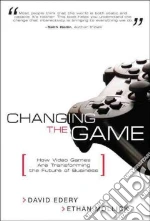 Libri di Ethan Mollick su Unilibro.it
)
Libri di Ethan Mollick su Unilibro.it
)
|
|
2025 |
 Title :
L'intelligenza condivisa. Vivere e lavorare insieme all'AI
Title :
L'intelligenza condivisa. Vivere e lavorare insieme all'AIAuthor: Mollick Ethan Publisher: Luiss University Press L'Intelligenza artificiale non è solo una straordinaria innovazione tecnologica: è la prima forma di intelligenza non umana con cui dobbiamo imparare a convivere. Non pensa come noi, non prova emozioni e non interpreta la realtà nel modo in cui siamo abituati a farlo. Eppure, scrive, progetta, insegna e crea. È una mente completamente diversa dalla nostra, quasi aliena, ma ormai parte integrante delle nostre vite. Ethan Mollick, professore alla Wharton School e tra i massimi esperti di innovazione e AI, offre una guida chiara e approfondita su come questa trasformazione stia cambiando il lavoro, l'educazione e la creatività. L'intelligenza condivisa esplora il potenziale dell'AI nel diventare un collega, un tutor, un coach e persino un partner creativo, aprendo scenari inediti, densi di opportunità ma anche di sfide da affrontare. Come possiamo sfruttare al meglio questa nuova intelligenza senza esserne travolti? Quali competenze umane resteranno indispensabili? E come possiamo assicurarci che questa convivenza sia non solo produttiva, ma anche etica? Un libro per orientarsi nel futuro, che è già realtà. € 18,00
Scontato: € 17,10
|
|
|
1910 |
 Title :
Changing the Game
Title :
Changing the GameAuthor: Edery David, Mollick Ethan Publisher: Ft Pr Use Video Games to Drive Innovation, Customer Engagement, Productivity, and Profit! Companies of all shapes and sizes have begun to use games to revolutionize the way they interact with customers and employees, becoming more competitive and more profitable as a result. Microsoft has used games to painlessly and cost-effectively quadruple voluntary employee participation in important tasks. Medical schools have used game-like simulators to train surgeons, reducing their error rate in practice by a factor of six. A recruiting game developed by the U.S. Army, for just 0.25% of the Army's total advertising budget, has had more impact on new recruits than all other forms of Army advertising combined. And Google is using video games to turn its visitors into a giant, voluntary labor force--encouraging them to manually label the millions of images found on the Web that Google's computers cannot identify on their own.
Changing the Game reveals how leading-edge organizations are using video games to reach new customers more cost-effectively; to build brands; to recruit, develop, and retain great employees; to drive more effective experimentation and innovation; to supercharge productivity…in short, to make it fun to do business. This book is packed with case studies, best practices, and pitfalls to avoid. It is essential reading for any forward-thinking executive, marketer, strategist, and entrepreneur, as well as anyone interested in video games in general.
€ 27,70
|